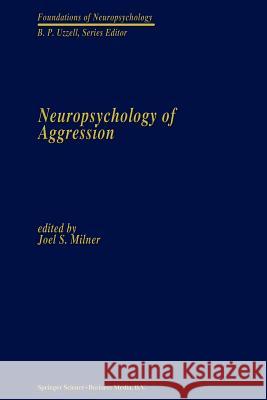Neuropsychology of Aggression » książka
Neuropsychology of Aggression
ISBN-13: 9781461367291 / Angielski / Miękka / 2012 / 193 str.
This book reviews putative neurological and neuropsychological factors in aggressive behavior. Discussions focus on explanatory models, brain sites, and cognitive functions that appear to be associated with aggressive behavior. Attention is given to measurement and design problems that are frequently encountered in the study of aggression. Further, it is emphasized that any relationship between neuropsychological factors and aggressive behavior will be complex. Neuropsychological factors must be considered in the context of mediating and moderating (precipitating and buffering) variables from other ecological levels (e. g., family support). Even if perpetrator neuro psychological factors are found to be reliably associated with aggression, it will still be necessary to demonstrate the extent to which different neuro psychological factors are marker or are causal variables in aggressive behavior. Finally, since there has been a major societal and professional interest in the study of aggression within the family, several chapters focus on the possible neurological, neuropsychological, and physiological aspects of family violence. Chapter 1, entitled "Biological Theories of Violence," written by Adrian Raine and Angela Scerbo, provides a theoretical context for understanding the role of biological factors in aggression. This chapter begins with a discussion of conceptual issues and methodological problems that impede theory development and research in aggression. Following this discussion, the authors present theories that may lead to a better understanding of the ix x Preface neurological and cognitive components of aggression. The presentation of each theory is followed by a discussion of theory-related research."











